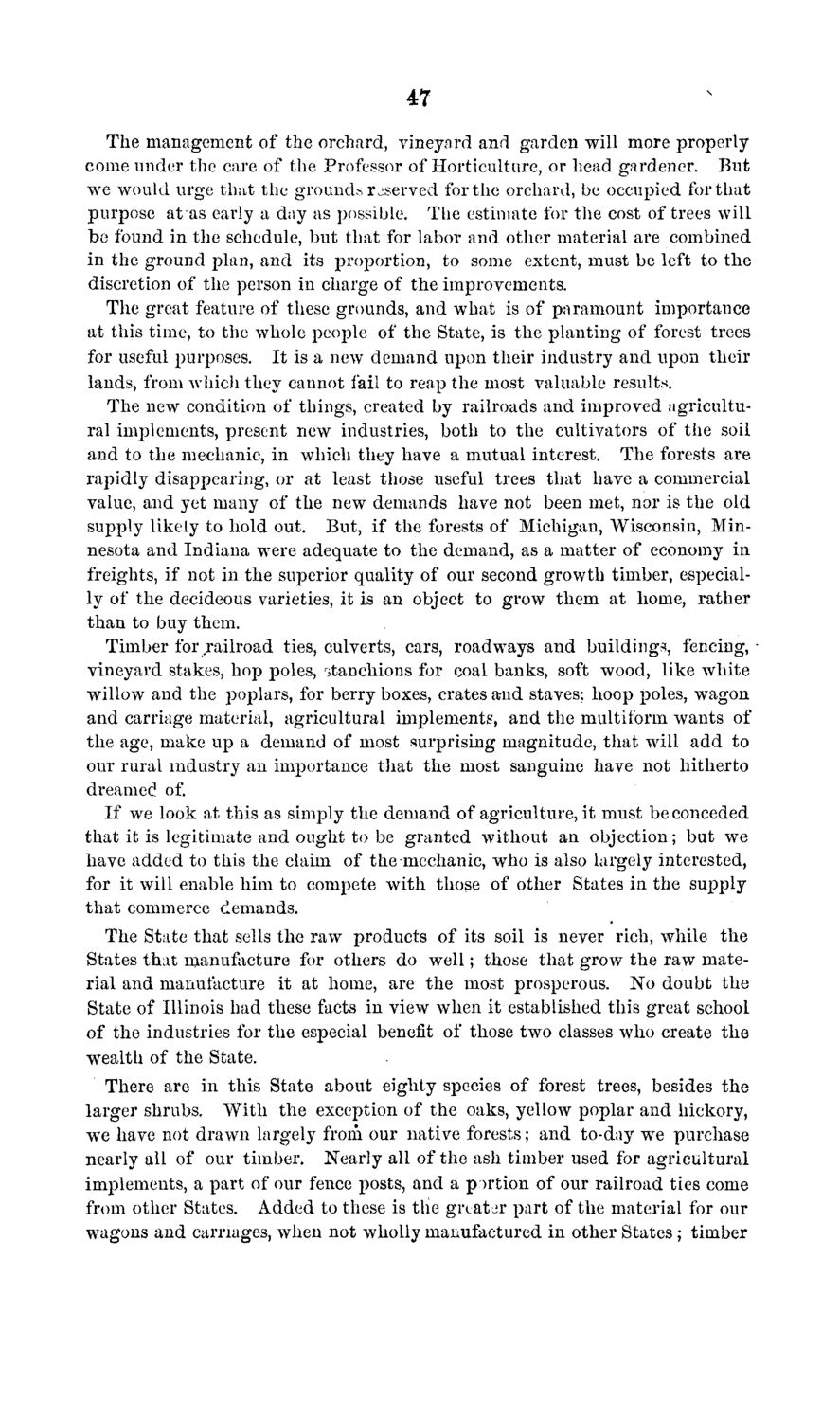| |
| |
Caption: Board of Trustees Minutes - 1869
This is a reduced-resolution page image for fast online browsing.

EXTRACTED TEXT FROM PAGE:
47 The management of the orchard, vineyard and garden will more properly come under the care of the Professor of Horticulture, or head gardener. But we would urge that the grounds reserved for the orchard, be occupied for that purpose at as early a day as possible. The estimate for the cost of trees will be found in the schedule, but that for labor and other material are combined in the ground plan, and its proportion, to some extent, must be left to tlie discretion of the person in charge of the improvements. The great feature of these grounds, and what is of paramount importance at this time, to the whole people of the State, is the planting of forest trees for useful purposes. It is a new demand upon their industry and upon their lands, from which they cannot fail to reap the most valuable results. The new condition of things, created by railroads and improved agricultural implements, present new industries, both to the cultivators of the soil and to the mechanic, in which they have a mutual interest. The forests are rapidly disappearing, or at least those useful trees that have a commercial value, and yet many of the new demands have not been met, nor is the old supply likely to hold out. But, if the forests of Michigan, Wisconsin, Minnesota and Indiana were adequate to the demand, as a matter of economy in freights, if not in the superior quality of our second growth timber, especially of the decideous varieties, it is an object to grow them at home, rather than to buy them. Timber for .railroad ties, culverts, cars, roadways and buildings, fencing, • vineyard stakes, hop poles, stanchions for coal banks, soft wood, like white willow and the poplars, for berry boxes, crates and staves; hoop poles, wagon and carriage material, agricultural implements, and the multiform wants of the age, make up a demand of most surprising magnitude, that will add to our rural industry an importance that the most sanguine have not hitherto dreamed of. If we look at this as simply the demand of agriculture, it must be conceded that it is legitimate and ought to be granted without an objection; but we have added to this the claim of the mechanic, who is also largely interested, for it will enable him to compete with those of other States in the supply that commerce demands. The State that sells the raw products of its soil is never rich, while the States that manufacture for others do w e l l ; those that grow the raw material and manufacture it at home, are the most prosperous. No doubt the State of Illinois had these facts in view when it established this great school of the industries for the especial benefit of those two classes who create the wealth of the State. There are in this State about eighty species of forest trees, besides the larger shrubs. W i t h the exception of the oaks, yellow poplar and hickory, we have not drawn largely from our native forests; and to-day we purchase nearly all of our timber. Nearly all of the ash timber used for agricultural implements, a part of our fence posts, and a portion of our railroad ties come from other States. Added to these is the greater part of the material for our wagons and carriages, when not wholly manufactured in other States ; timber
| |